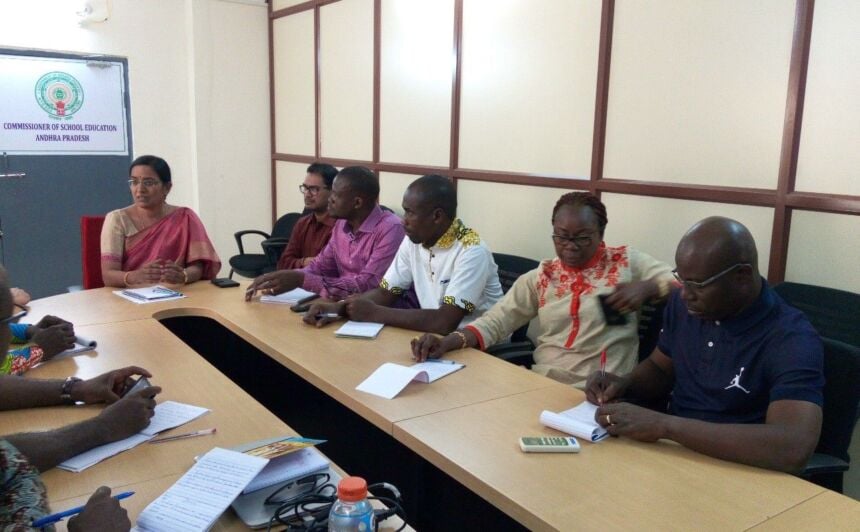Share Content
Article Link Copied
Preparing Ivorians for the challenges to come

As a field officer for TRECC (Transforming Education in Cocoa Communities), I usually visit intervention zones to monitor the development of education projects in rural areas in Ivory Coast. Last month, my horizons broadened as I led a delegation of the Ivorian Ministry of Education to Andhra Pradesh, an Indian state where the NGO River-Tide has been implementing innovative school programs for more than 30 years. I couldn’t help but compare my small country to India all along the way, and I came to the conclusion that we have much to learn from them.
In Ivory Coast, despite mandatory schooling, education faces many challenges, such as:
- The lack of infrastructure and teaching materials
- The lack of teachers and absenteeism
- A methodology that is not necessarily adapted to children’s needs
- High drop-out rates; and
- A mismatch between the current technical and vocational training offer and the needs of the economy
India is about ten times the size of the Ivory Coast -in terms of surface area-, but it holds 57 times as many people. I wondered how such a vast and immensely populated country could offer quality education services to its children. Considering the circumstances, can Ivory Coast be inspired by some of the solutions that Indians have adopted?
I had a chance to closely examine River-Tide, an initiative that proposes a structure for elementary education based in multi-level methodologies. An interesting feature of the initiative is that programs can be set up in schools consisting of only two classrooms. Also, just two teachers are required to successfully run the program, which up to 150 children can attend, this means that River-Tide’s model can be adapted to contexts with little infrastructure and personnel.
The curriculum and methodology are flexible. The school’s immediate environment has a strong influence on what the children learn, with curricula being adapted locally where the program is implemented. River-Tide’s teaching methods include a lot of games that students can enjoy while they learn. A shocking discovery for me was to see the teacher sitting down on the floor at the same level as the students; I can only imagine that such a setup probably boosts children’s self-confidence and builds their willingness to participate.
Furthermore, the model employs technology to enhance the educational value and experience. Not only does IT provide new supports and different ways that children can learn, it is also used to monitor the teachers’ presence, help them follow the curriculum at the right pace, and reinforce their pedagogical skills. The program also includes solutions to easily monitor outcomes in a practical way with the use of technology.
TRECC is currently working on a partnership with River-Tide. An implementation of their model in rural areas in Ivory Coast is planned for 2018, with possibilities to go beyond that if scaled. The Ivorian Government will be involved before and after the program runs. This partnership with TRECC will be River-Tide’s first experience in francophone Africa, and I hope it yields successful results so that our education system can evolve to prepare future generations of Ivorians for the challenges to come.
TRECC works in cocoa-growing communities in Ivory Coast by, among others, supporting innovative education models that can boost numeracy and literacy skills. By working with the Ivorian Government, members of the cocoa industry and local organizations, we are also seeking to ensure that rural communities have access to quality education after the involvement of the Jacobs Foundation has come to an end.